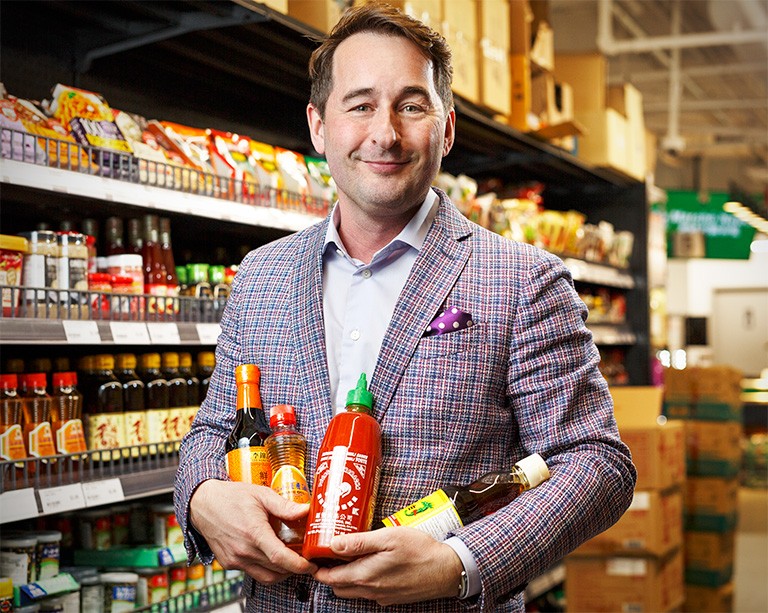Trending technologies
 “On one hand, these are not fun jobs,” says Jordan LeBel. “On the other hand, where’s that knowledge going?”
“On one hand, these are not fun jobs,” says Jordan LeBel. “On the other hand, where’s that knowledge going?”
Jordan LeBel, a professor of marketing at the John Molson School of Business, keeps an eye on trends. In the wake of the pandemic, certain technological advancements have leapt forward, according to the researcher.
Online grocery shopping and delivery, once a niche pursuit, have become much more widespread. The U.S. online grocery market, previously predicted to grow to $100 billion by 2025, is now projected to soar to $250 billion over the next four years, he says.
Technology can be a force for good, depending on how people choose to use it — and the food industry is no exception. Plastic waste can be reduced thanks to the development of biodegradable resins that can be sprayed on fruits and vegetables to prolong freshness. And in an industry that can be frustratingly opaque, technological advancements are being harnessed to improve tracing within the global food supply chain, which could reduce fraud.
The appeal of robot labour — no sick days necessary — has grown as well. Robots are already in warehouses and are beginning to roam the aisles of hypermarkets at night, cleaning and realigning goods. A large meat-processing company recently announced it would test the use of robots for larger cuts on carcasses. Pizza giant Domino’s is testing delivery using driverless cars, and other fast-food chains are experimenting with burger-flipping robots.
Whether this is seen as a sign of progress or a dystopian future may depend, in part, on what governments and big business do to supplement the loss of such low-wage work.
“On one hand, these are not fun jobs,” says LeBel. “On the other hand, where’s that knowledge going? The people who used to do those jobs, they have a certain savoir faire. Now, even butchers are being replaced by robots. As a society, as an industry, what are we doing to make sure knowledge doesn’t get lost?”
